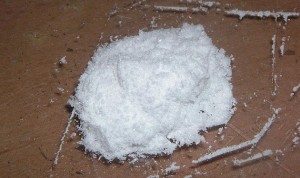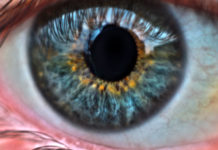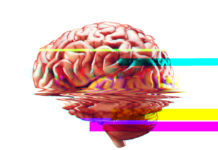 A new study using ketamine to treat people with treatment-resistant depression has been carried out by researchers at the University of Oxford. “Ketamine is a promising new antidepressant which works in a different way to existing antidepressants. We wanted to see whether it would be safe if given repeatedly, and whether it would be practical in an NHS setting. We especially wanted to check that repeated infusions didn’t cause cognitive problems,” explained principal investigator Dr Rupert McShane, a researcher in Oxford University’s Department of Psychiatry.
A new study using ketamine to treat people with treatment-resistant depression has been carried out by researchers at the University of Oxford. “Ketamine is a promising new antidepressant which works in a different way to existing antidepressants. We wanted to see whether it would be safe if given repeatedly, and whether it would be practical in an NHS setting. We especially wanted to check that repeated infusions didn’t cause cognitive problems,” explained principal investigator Dr Rupert McShane, a researcher in Oxford University’s Department of Psychiatry.
The researchers confirmed that ketamine has a rapid antidepressant effect in some patients with severe depression who have not responded to other treatments. These are patients suffering from severe depression which may have lasted years despite multiple antidepressants and talking therapies. Although many patients relapsed within a day or two, 29% had benefit which lasted at least three weeks and 15% took over 2 months to relapse.
Ketamine did not cause cognitive or bladder side effects when given on up to 6 occasions, although some people did experience other side effects such as anxiety during the infusion or being sick. The team have now given over 400 infusions to 45 patients and are exploring ways to maintain the effect. They report their findings in the Journal of Psychopharmacology.
Dr McShane says: ‘We’ve seen remarkable changes in people who’ve had severe depression for many years that no other treatment has touched. It’s very moving to witness. Patients often comment that that the flow of their thinking seems suddenly freer. For some, even a brief experience of response helps them to realize that they can get better and this gives hope.’
In treatment-resistant depression, electroconvulsive therapy (ECT) is sometimes considered. Although ECT is effective, this benefit has to be balanced against the risk of memory loss. There is a need for developing more treatment options.
In the past few years, small randomised controlled trials have consistently shown that a single infusion of ketamine has a substantial and rapid antidepressant effect in some patients with treatment-resistant depression who have been taken off other antidepressants. In those single dose studies, patients typically, though not always, relapse within a week.
In the Oxford study, 28 patients with treatment-resistant depression were treated over three weeks. They received either three or six ketamine infusions lasting 40 minutes. Memory tests were carried out a few days after the final infusion. Patients reported their mood symptoms daily via text or email.
The antidepressant response sometimes took a second ketamine infusion to become apparent. 3 days after the last infusion, the depression scores had halved in 29% of the patients. In those that responded to the treatment, the duration of benefit varied widely, lasting between 25 days and 8 months (median 2.3 months).
Ketamine did not cause memory or bladder problems. Some patients became anxious during the infusions and some did not complete the course because they did not feel they were benefitting. A few were sick and one fainted. The patients were severely depressed and episodes of suicidal behaviour (such as had occurred before the infusions) also occurred during the study, but suicidal ideas diminished overall.
Most patients experienced some short-lived ‘dissociative’ effects from the ketamine — their perceptions might be distorted slightly, they felt disconnected from their body — but these only occurred while the drug was being infused and were not connected to the antidepressant effect. They did not feel euphoric with the treatment.
In addition to being approved as an anesthetic, ketamine is also widely viewed as a popular “party” drug. However, the doses used are very different. When used on the street at a level of several grams a day, severe bladder problems occur and cognitive function is impaired. The dose used in this study was no more than 80 mg (80 thousandths of a gram) every week in the controlled and closely monitored setting of an NHS hospital.
The team has now treated 45 patients in total. Of these, 9 (20%) have benefitted to the point where it was thought worthwhile to have further intermittent ketamine treatments. Of these 9, 4 are currently continuing ketamine treatment, 1 is in remission (is not currently depressed) without treatment, and 4 relapsed and have gone on to other treatment. As with its use for chronic pain, there has been no evidence of addiction when given regularly over up to 2 years.
‘Intravenous ketamine is an inexpensive drug which has a dramatic, but often short term, effect in some patients whose lives are blighted by chronic severe depression’ says Dr McShane.
He adds: ‘We now need to build up clinical experience with ketamine in a small number of carefully monitored patients. By trying different infusion regimes and adding other licensed drugs, we hope to find simple ways to prolong its dramatic effect.’
Source: P. R. Diamond, A. D. Farmery, S. Atkinson, J. Haldar, N. Williams, P. J. Cowen, J. R. Geddes, R. McShane. Ketamine infusions for treatment resistant depression: a series of 28 patients treated weekly or twice weekly in an ECT clinic. Journal of Psychopharmacology, 2014; DOI: 10.1177/0269881114527361













